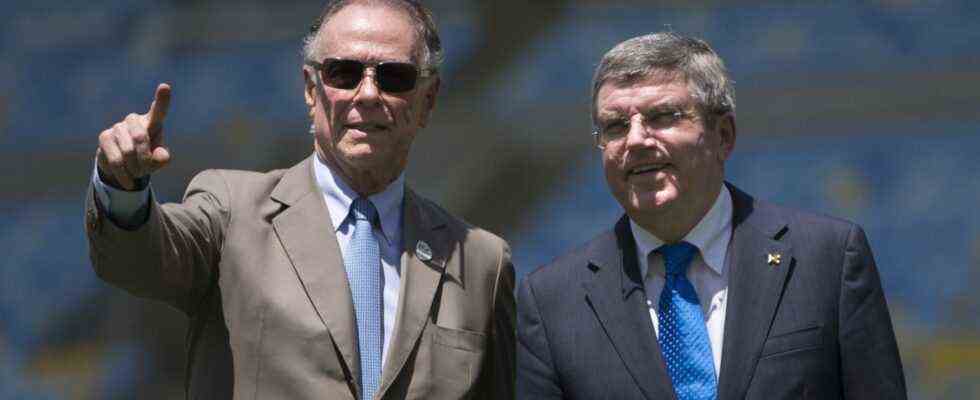30 years and eleven months. Almost 31 years behind bars, this is the future of the man who opened the 2016 Summer Olympics in Rio de Janeiro and who, as a long-time dignitary on the International Olympic Committee (IOC), was particularly close to President Thomas Bach, whom he supported. Carlos Arthur Nuzman, 79, will now be spending his days in a detention center in the city that he corruptly helped host the Games in autumn 2009.
But also: in the usual way. Because the bribe system that the Brazilian judiciary uncovered around the allocation of games to Rio reveals the pattern of an Olympic nepotism with the same actors at the center. Therefore, the harsh verdict is now putting the judiciary and politics in Japan under pressure: The same dark forces that helped Nuzman’s corrupt candidacy for Rio to victory are also appearing in similarly channeled, questionable cash flows around the award of the 2020 Summer Games to Tokyo.
In the corruption process in Rio, in addition to Nuzman, who also headed Brazil’s Olympic Committee COB, his then head of marketing Leonardo Gryner was condemned (13 years and ten months); Rio’s former governor Sergio Cabral, who had a criminal record, got away with ten years and eight months in prison. After all, Cabral was the first to accept bribes when applying in 2019: he and Nuzman bought votes for two million US dollars. The money was provided by the Brazilian entrepreneur Arthur Soares before the IOC vote in Copenhagen in autumn 2009. At that time, Rio prevailed against Madrid, Tokyo and Chicago.
Nuzman discreetly helped another long-time IOC top official: Lamine Diack, 88, Senegalese head of the World Athletics Federation, and his son Papa Massata Diack. The latter has been hunted by Interpol for years, father Lamine was sentenced to four years in prison in autumn 2020 after years of house arrest in Paris. He’s appealed.
The corruption scheme: In October 2019, days before Rio’s election triumph, $ 1.5 million from billionaire Soares flowed through the Caribbean to an agency called Pamodzi – which belonged to Papa Massata Diack. The money was earmarked for buying votes in the African IOC bloc, which Lamine Diack ruled for many years. In 2019, ex-Governor Cabral admitted that Nuzman brokered the deal between Diack and financier Soares; the entrepreneur had cashed in big at the games. It is unclear whether Nuzman himself had financial advantages. However, during their raid in 2017, the judiciary found a key in the chambers of the IOC honorary member that led them directly to the gold: 16 bars, hidden in a Geneva locker, worth around 560,000 euros.
Rio’s fraud pattern coincides with the serious suspicion of Tokyo 2020. A lot of money also flowed from the applicant country to an agency close to Diack junior for this game award: first $ 950,000 in July 2013, then $ 1.38 million in October. Payment subject: “Tokyo 2020 Olympic Games Bid”. Consultant fees, say the Japanese. Only they cannot explain the expensive services the Diacks had rendered.
Like Brazil in Nuzman, Tokyo had a top force in the IOC in Tsunekazu Takeda. Takeda was the head of organization for the application, chairman of Japan’s Olympic Committee – and, as the powerful head of the IOC marketing commission, sat at central sources of money. When the suspicions, compiled by the Paris special prosecutor’s office PNF, became too dense, Takeda resigned in March 2019. Shortly before, the IOC had even suspended the age limit of 70 years for him so that he could finish the Tokyo Games.
It remains to be seen whether the Rio ruling can break the silence in Tokyo. The pandemic games have long since become a political issue there. However, other bodies could also turn to Olympic corruption. According to the files, around half a dozen IOC people were involved in both Rio and Tokyo – four purchased votes could call FBI investigators to the scene. So far, the US Federal Police have kept themselves informed about the Rio Cause, now they can take action: In Rio’s election victory, Chicago failed in round one with 18 votes; Rio started on 26th. Four bought votes would be decisive.

